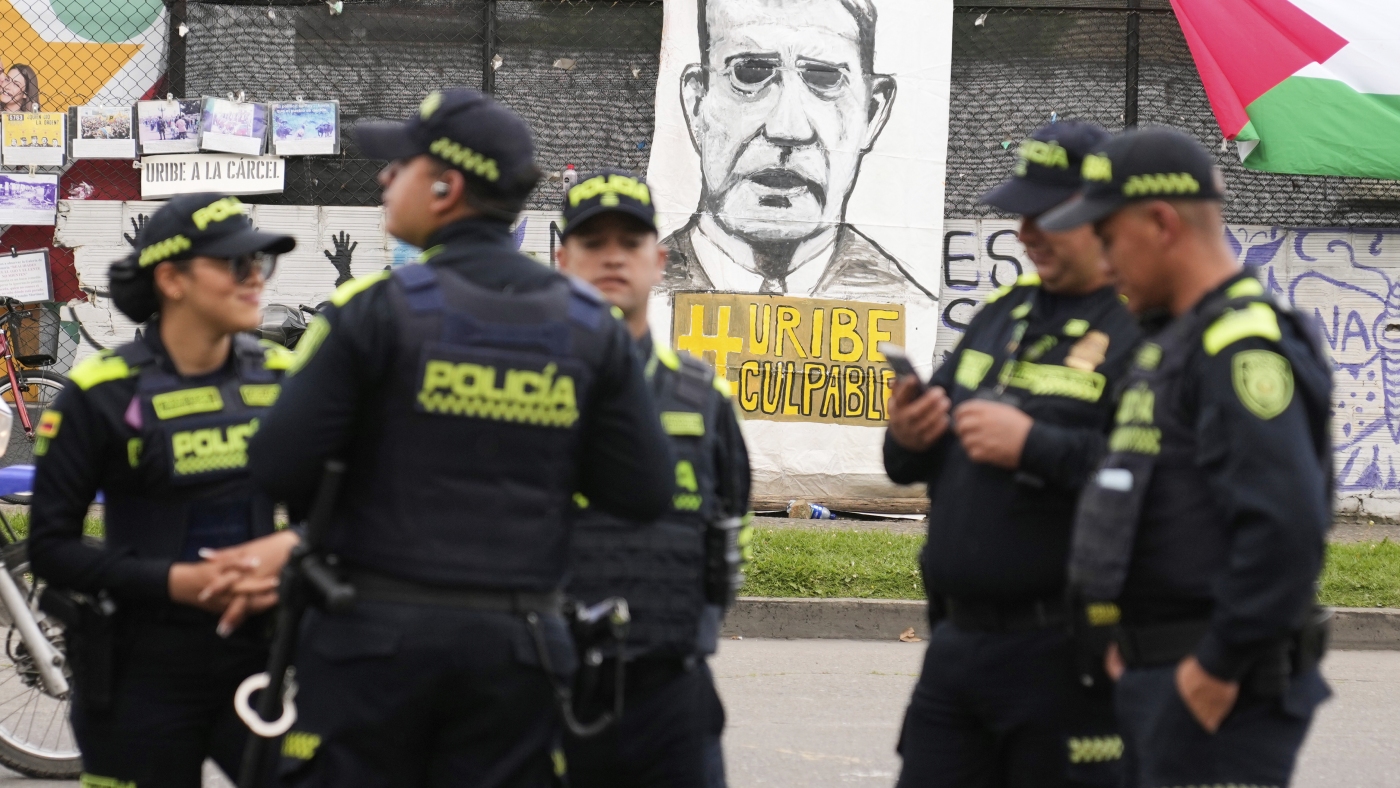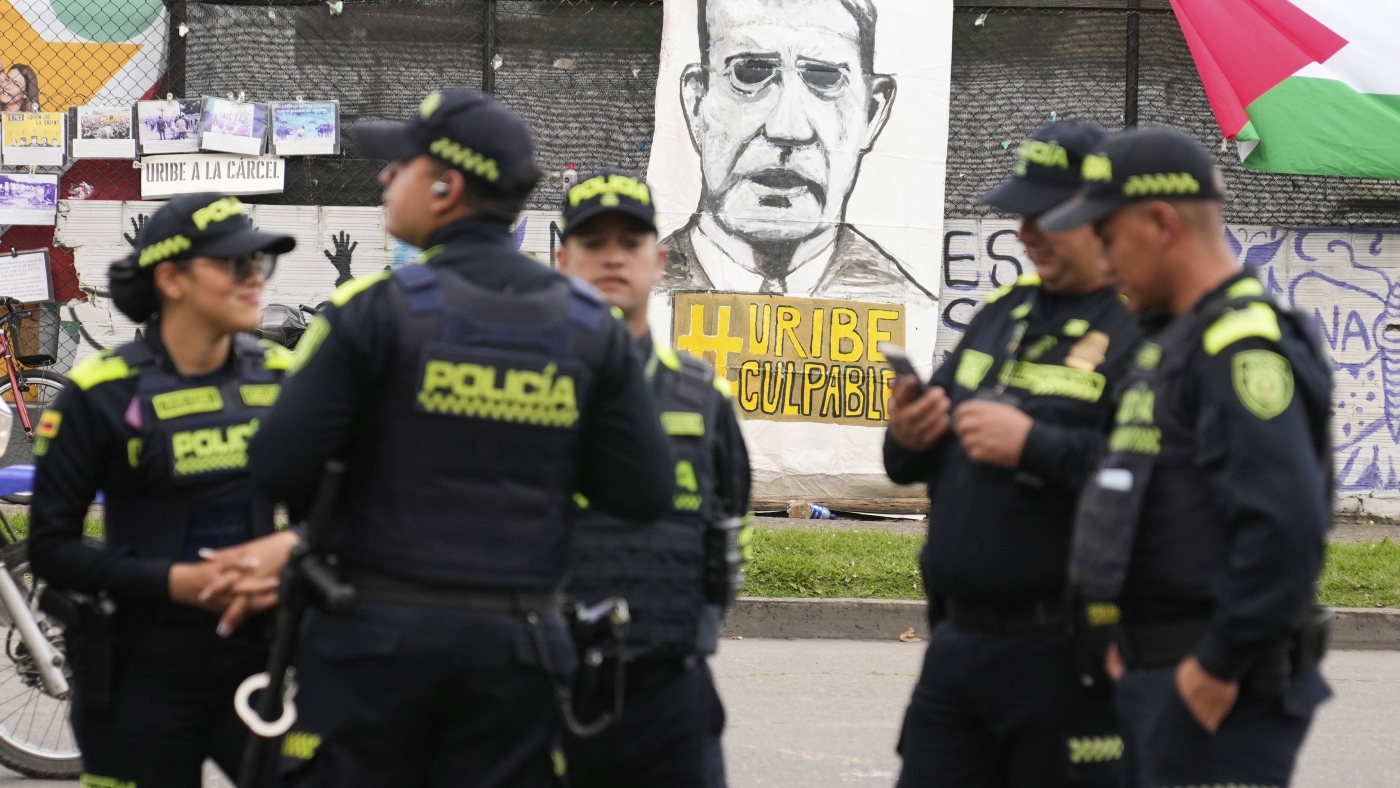The Fall of a Titan: Analyzing the Uribe Bribery Conviction
Introduction: A Watershed Moment in Colombian History
The conviction of former Colombian President Álvaro Uribe for bribery and witness tampering is more than just the downfall of a political figure. It represents a pivotal moment in Colombia’s history, a reckoning with a legacy that has shaped the nation for over two decades. Uribe, once a dominant force in Colombian politics, now stands as the first former president convicted in a criminal trial. This dramatic fall from grace raises profound questions about power, accountability, and the pursuit of justice in a country still healing from decades of conflict.
Uribe’s Rise and Influence: A Nation Forged in Fire
To fully grasp the significance of Uribe’s conviction, it is essential to understand the context of his ascent to power. Uribe rose to prominence during a period of intense conflict in Colombia, where the Revolutionary Armed Forces of Colombia (FARC) waged a decades-long civil war against the government. His “Democratic Security Policy,” implemented during his presidency from 2002 to 2010, prioritized military offensives and aggressive tactics to combat the guerrillas. This approach, while controversial, resonated with a population weary of violence and insecurity.
Uribe’s tough-on-crime stance and his close relationship with the military earned him unwavering support from many Colombians, who credited him with significantly weakening the FARC and restoring a sense of order. His popularity allowed him to successfully push for a constitutional amendment allowing him to serve two consecutive terms—a testament to his political sway. However, this success came at a cost. Allegations of human rights abuses committed by the military under his command, including extrajudicial killings of civilians known as the “false positives” scandal, cast a long shadow over his legacy. These accusations, coupled with suspicions of ties between Uribe’s allies and paramilitary groups, fueled deep divisions within Colombian society.
The Charges: Unraveling the Web of Allegations
The case against Uribe revolved around allegations of witness tampering and bribery connected to investigations into his alleged ties to paramilitary groups. Specifically, he was accused of attempting to influence witnesses to retract or change their testimonies, thereby obstructing justice and protecting his reputation. The prosecution argued that Uribe, through intermediaries, offered incentives and exerted pressure on individuals who could potentially link him to illegal armed groups.
The trial itself was a protracted and highly polarized affair, marked by intense legal battles, public accusations, and political maneuvering. Uribe consistently maintained his innocence, claiming that the charges were politically motivated and part of a smear campaign orchestrated by his political opponents. He portrayed himself as a victim of persecution, arguing that his efforts to defend himself against false accusations were being twisted into criminal acts.
The complexity of the case stemmed from the murky nature of Colombia’s conflict and the difficulty of untangling the relationships between politicians, the military, and paramilitary groups. Proving direct links and establishing criminal intent proved to be a formidable challenge for the prosecution.
The Verdict: A Historic Turning Point
The guilty verdict represents a monumental victory for those who have long sought to hold Uribe accountable for alleged wrongdoings during his time in office. It sends a powerful message that no one, regardless of their position or influence, is above the law. The conviction validates the persistent efforts of human rights organizations, journalists, and victims who have tirelessly investigated and documented the alleged crimes committed during Uribe’s presidency.
For Uribe’s supporters, the verdict is a devastating blow. They view him as a national hero who saved Colombia from the brink of collapse and see the conviction as a politically motivated injustice. The ruling is likely to deepen the existing polarization within Colombian society, further dividing those who idolize Uribe from those who believe he should be held accountable for alleged human rights violations and ties to paramilitary groups.
The legal ramifications of the conviction remain to be seen. Uribe faces a potential prison sentence, although the length and nature of that sentence will depend on further legal proceedings and appeals. Regardless of the ultimate outcome, the conviction itself will have a lasting impact on Uribe’s legacy and his role in Colombian history.
Implications for Colombia’s Future
The Uribe conviction has far-reaching implications for Colombia’s political future. It could embolden efforts to investigate other high-profile figures suspected of involvement in human rights abuses and corruption. It could also lead to a reassessment of Colombia’s approach to dealing with its violent past and a renewed focus on transitional justice mechanisms.
Moreover, the conviction could reshape the political landscape in Colombia, potentially weakening the conservative forces that have dominated the country for decades. Uribe’s political movement, the Democratic Center party, will likely face significant challenges in the wake of his downfall. The verdict could also create opportunities for progressive and centrist forces to gain ground and advance alternative visions for Colombia’s future.
However, the conviction also carries the risk of further instability and polarization. Uribe’s supporters may react with anger and resentment, potentially leading to social unrest and political violence. It is crucial for the Colombian government and civil society to promote dialogue, reconciliation, and respect for the rule of law in order to navigate this challenging period.
A Legacy Redefined
Álvaro Uribe’s legacy is now forever intertwined with this conviction. While he will continue to be remembered by many for his role in combating the FARC and restoring security to Colombia, he will also be associated with allegations of human rights abuses, ties to paramilitary groups, and now, witness tampering and bribery. The historical narrative surrounding Uribe will be debated and contested for years to come, but the conviction serves as a stark reminder of the complexities of power, the importance of accountability, and the enduring pursuit of justice in a nation grappling with its troubled past. The fall of this titan forces Colombia to confront uncomfortable truths and grapple with the shadows that linger beneath even the most celebrated victories.








